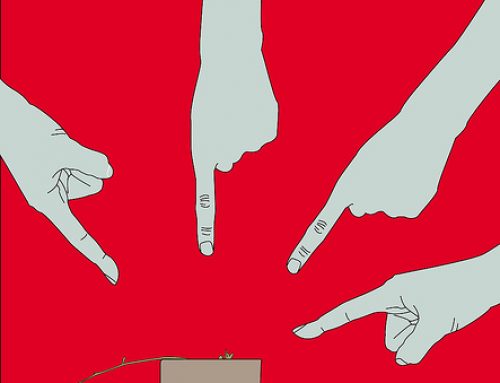It might seem odd to associate the word practice with relationships, yet I think it’s appropriate. You need to practice at whatever you want to be great at, and the fact is most people suck at relationships.
Relationships (not just the romantic ones) end, sometimes bitterly, remain stagnant, or distant—without any passion, joy or excitement—and often never develop at all. Teams are dysfunctional, siblings fight into adulthood, colleagues mistrust each other, bosses rule by fear, no-one listens, and people just don’t get along.
Good relationships are grown not found
Clearly most people don’t have the required skills to form and grow healthy relationships, and they live their lives resigned to having only the one or two that work, or worse being cynical about all relationships.
Most people look at a great relationship as something we are fortunate to find, and not as something that depends on what we bring to it.
But why aren’t we better at cultivating relationships when we’re literally immersed in them every day, at home, at work, and at play?
Just being in relationships is not enough
Just being in relationships, or in the case of romantic relationships, moving from one to another is not enough to get better at them.
It’s just like sports; simply playing golf every weekend or even three or four times a week is not enough to improve your golf game. Playing the game is of course essential, but without a considered approach to what you’re doing while you’re playing the game, and without taking regular, deliberate, and evolving actions to improve your game, your golf game will …NOT…improve.
In short, you need to practice to improve at sports and at your relationships.
What do we mean by practice?
Practice refers to repeated engagement with the thoughts, and actions (drills, exercises, routines etc.,) that are designed to improve performance.
Deliberate practice (Ericsson, Krampe, Tesch-Romer) refers to the idea of breaking down performance into it’s most basic, component parts and designing activities specifically meant to have your body learn to perform them flawlessly and automatically.
Deliberate practice also calls for new techniques, to be invented and learned to increase performance to higher and higher levels. (Incomplete I know, but good enough for Government work) 😉
Relationships especially require practice
Like playing golf without a considered approach to why you’re playing the game, simply being in relationships is not enough to improve them.
In short, being good at forming, and developing healthy relationships requires practice, and the following questions is a good place to start:
- What do I want out of my relationships?
- What’s working/not-working in my current relationships?
- What’s flawed, missing, weak or incomplete in what I bring to the relationships in my life?
- Which relationships should I work at, and which should I quit?
- What am I doing wrong or what can I take responsibility for in my failed or ailing relationships?
- What do I need to learn about relationships?
- Who can best teach me and help me apply what I need to know?
Only you can answer the first question, but you’ll need help for the rest of them. Especially since relationships are both “all the same”, and yet very different at the same time.
And there are teachers that can help
The good news is that there are several companies/teachers that do provide workshops, seminars that can help you learn the fundamental mechanics of how relationships work, why they fail, how to listen, how to know when to quit or fight for a relationship etc.
Some of them even provide coaching as well as communities that can support your practice of cultivating relationships that help you fulfill your personal ambition or business mission.
Landmark Education and Byron Katie are two that come to mind. You can read what people have to say about the Landmark Forum on MorevidaReviews.
I’ll make sure to let you know of other course that can help as I discover them. Can you recommend any good relationship courses? Click here to share them on MorevidaReviews.com




Any thoughts? Contributions/acknowledgments welcome.